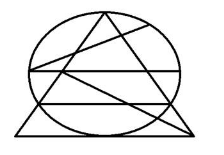Question
After how many years of remaining unclaimed, are the
proceeds of such inoperative accounts to be transferred to the Depositor Education and Awareness Fund?Solution
In India, as per the guidelines issued by the Reserve Bank of India (RBI), the proceeds of inoperative accounts and unclaimed deposits with banks are transferred to the Depositor Education and Awareness Fund (DEAF) after a period of 10 years from the date of the last transaction in the account. This means that if there has been no transaction in a bank account for a period of 10 years or more, and the account has become inoperative, the balance in the account will be transferred to the DEAF. Similarly, if a deposit or investment in a financial institution remains unclaimed for a period of 10 years, the proceeds will also be transferred to the DEAF.
Statement : "The government has decided to build more highways to improve connectivity."
Assumptions :
I. Highways help in economic grow...
Seven persons (D, E, F, G, H, I, and J) have different number of chocolates. Only G has more chocolates than H. I has more chocolates than J and D. D ha...
In a class among five students, T has more marks than U and V, but V does not have least marks. W has more marks than X and X has more marks than T, who...
Naveen is ranked 26th from the top in his class. When counted from the bottom, he is ranked 44th. What is the total number of stud...
Find the number of triangles in the given figure:

Who among the following has more marks than H?
M is sixth form the left end and N is fourteen from the right end. O who is third to the right of M is sixth to the left of N. find the total number of ...
Seven persons, J, K, L, M, N, O and P are of different heights. L is taller than 4 persons. K is taller than N, who is taller than M and O. J is taller ...
If the difference between the weights of U and R is 23kg, then how many items are lighter than the item S?
Gaurav started walking 4 km straight from his school. Then he turned right and walked 2 km. Again he turned right and walked 2 km to reach his house. If...



